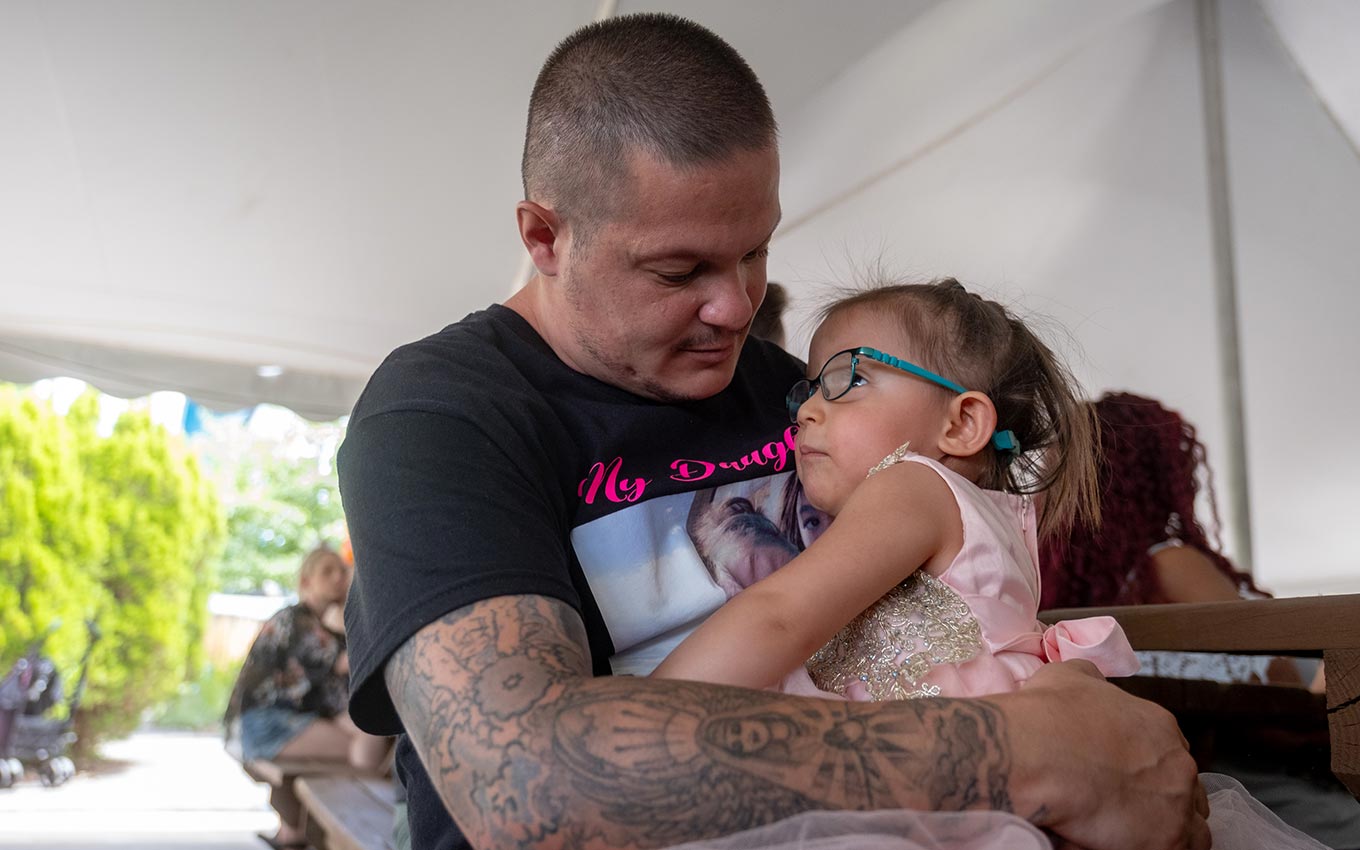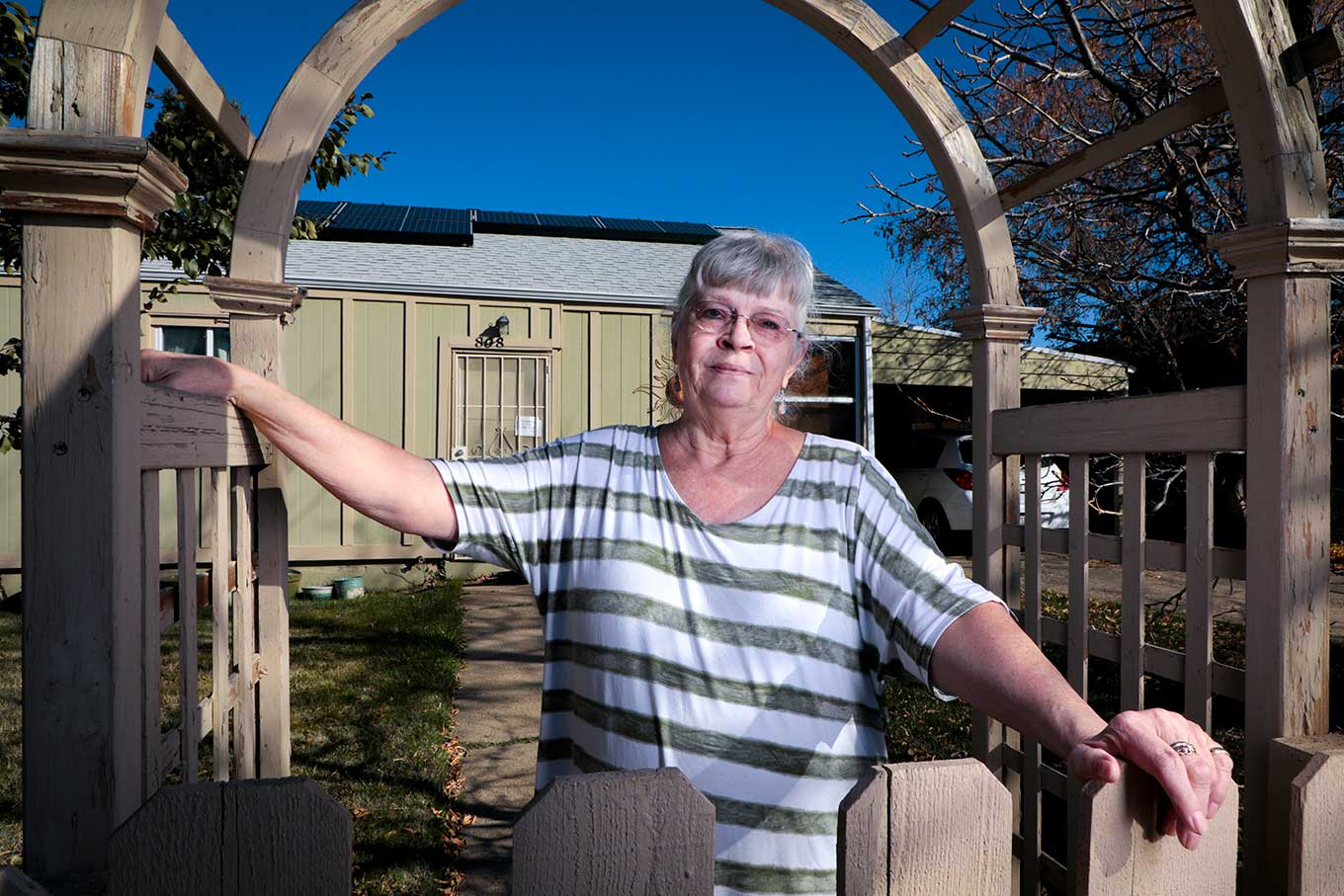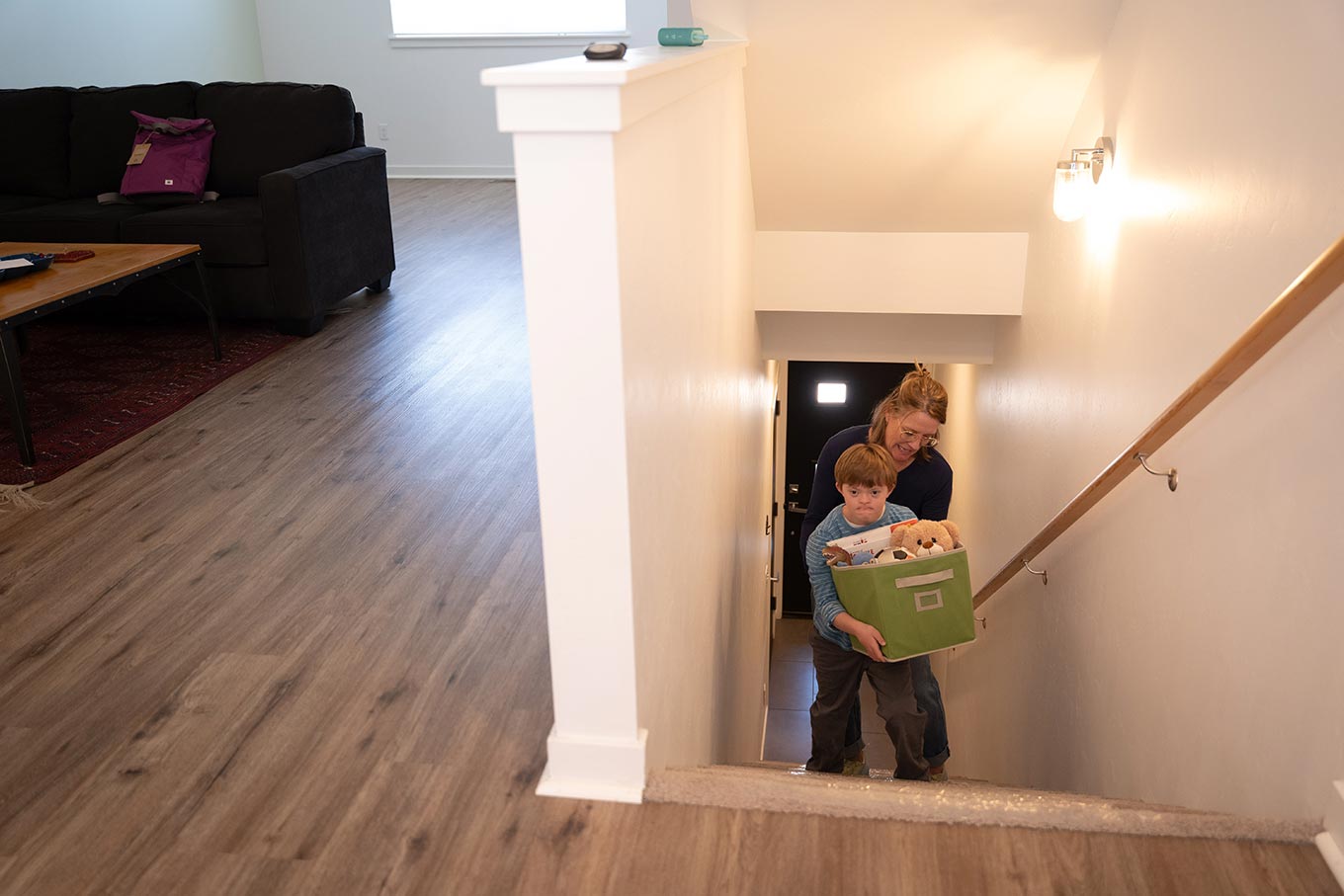A shortage of affordable housing in Colorado has played a role in children being removed from their homes and placed into foster care over the past couple of years, according to an analysis of Colorado Department of Human Services data and interviews with experts.
Inadequate housing or experiencing homelessness was a factor in about 13% of cases in which Colorado children were placed into foster care from 2021 through 2023, the data show. Nationally, housing is cited as a reason for removal in about 11% of cases, according to the most recent data compiled by the U.S. Department of Health and Human Services.
State human services officials said that there are often other reasons that child welfare agencies get involved and that there must be a risk to a child’s safety for officials to take steps to remove a child. Removals are rare, added Joe Homlar, who heads the state’s child welfare division, and the rate of children placed in foster care has declined in recent years as agencies have sought to keep more families together.
“Only in very rare cases are children removed from a home solely because of the parent’s living situation,” said Julie Popp, the Colorado Department of Human Services communications manager.
In Colorado, a parent’s substance use was cited in 45% of child removals over the past three years, and neglect was a factor in 38% of removals, according to Popp.
Still, advocates for families said without stable housing, parents often struggle to reunite with their children. At the same time, losing their children to foster care can send families into financial and emotional spirals, making it more difficult to find housing and to stay housed.
“Stable housing is a foundation for families to be able to address every other challenge that they have in their lives,” said Shawna Mackey Geiger, director of engagement for the Colorado Office of Respondent Parents’ Counsel.
Geiger’s office provides state-funded representation in child welfare cases for parents who can’t afford attorneys—which, in Colorado, is most of them. In the state, as elsewhere, child welfare involvement is closely correlated with poverty; 90% of child welfare cases in Colorado involve at least one parent who is living in poverty, according to a 2023 report from the Office of Respondent Parents’ Counsel.
“For our clients that struggle with substance use disorder, they struggle even more when they don’t have a permanent place to stay,” Geiger said. “For our clients that struggle with mental health issues, it’s the same thing.”
Geiger added that “it’s far easier for families to thrive when they have stable housing, and it’s easier for children to thrive when their parents aren’t struggling to find a stable place to stay.”
While each family’s path to housing instability and homelessness is unique, the common thread is a lack of affordable housing, according to Evan Caster, who directs homelessness initiatives for the Colorado Department of Human Services.
“The barriers in access to housing have changed,” Caster said. For all Coloradans, including those with children, “low-cost rentals have been harder to find.”
Homlar said county human services agencies work hard to keep families together or to reunite them. Still, he added, housing isn’t frequently child welfare agencies’ most salient concern when addressing barriers to family reunification.
“Because children aren’t removed solely because of housing, being unhoused alone wouldn’t be a barrier” to reunification, Homlar said.
Some child safety advocates say assisting parents with their housing needs would ultimately help their children. Ruth White, who directs the Maryland-based Center for Housing and Child Welfare, said many human services agencies have the resources to help families directly.
“They could be paying rent, paying for motels, fixing cars, giving out cash,” White said. “If you talk to alumni of foster care as adults, they will tell you oftentimes, ‘I am aware that if they’d just paid my mom’s rent, this wouldn’t have happened to me.’”
But agencies rarely do that, instead leaving it to the families themselves to find a way out of homelessness, according to White, and often with the additional burden of parenting classes or other court-mandated requirements. This approach, she said, ignores the trauma inflicted on children when they are separated from their parents.
Sonia Neblett is a parent advocate for the Colorado Office of Respondent Parents’ Counsel. She sees housing as possibly the single biggest barrier to reunification for many of the families she assists.

Sonia Neblett, a parent advocate with the Colorado Office of Respondent Parents’ Counsel, poses for a portrait on June 24, 2024, at an event celebrating the reunification of families, at Elitch Gardens in Denver, Colo. Photo by Eli Imadali / Special to The Colorado Trust
In Neblett’s work on behalf of families, she draws on her experiences in the child welfare system. In 2007, after her husband was incarcerated and the family lost a crucial source of income, her children were removed from her home and placed into foster care with Neblett’s mother, where they stayed for years. She blames the child welfare system for tearing her family apart.
“I know what it’s like to be homeless with your kids and have these people over here who think you’re the worst person in the world,” Neblett said. Losing her children broke her, she added. “I kind of spiraled after that to I-don’t-care mode.” She became addicted to oxycontin.
Neblett got a lucky break in jail. A mental health provider “believed in me more than I believed in myself” and set her on a path toward probation and housing. In 2009, she petitioned to get her children back and won. Since then, Neblett said, she has dedicated herself to rebuilding her own family—and other families.
Finding housing is her specialty.
In 2022, Neblett’s work connected her with Ray Rosa and his wife, Susana Dorado. The couple was homeless in Denver, camping on the streets or in a storage facility. Their five children, ranging in age from a baby under the age of 1 to a 14-year-old, had been taken away, one by one, following allegations of neglect and abuse that the couple said were false.
In the final case—the one that resulted in their oldest and youngest daughters being removed and placed into foster care with strangers—child welfare officials flagged the family because of the poor condition of a relative’s house where they had been staying.
When Neblett met them, Dorado, who suffers from seizures, had lost Medicaid coverage. Her medications were no longer covered. Rosa was doing his best to take care of her. Just surviving from one day to the next took all they had.
The list of requirements that officials had set out for them to reunite their family—parenting classes, life skills classes, therapy, randomly scheduled drug tests and visits with their children—felt impossible. Forget holding down a job.
One day, Rosa called Neblett in tears.
“He told me, ‘I’m such a failure. I don’t even feel like a man. I can’t even provide for my family. I always provide for my family,’” Neblett recalled.
Rosa remembers that, too: “There was a point there when we told Sonia, ‘Let them keep our kids. We have each other.’”
This time, it was Neblett’s turn to believe in the couple more than they believed in themselves: “Sonia wasn’t allowing us to do that,” Rosa said.
Neblett describes her technique for finding housing in Denver’s tight rental market as a matter of showing up at housing offices and apartment complexes, refusing to take no for an answer and getting to what she calls a “slow yes.” In a single weekend that has taken on mythical status in the office, she housed 11 families. Geiger, Neblett’s colleague, describes her as a kind of miracle worker.
“She has avenues that I don’t know how to access or how to begin where to look,” said Geiger. “It feels like she conjures things out of thin air.”
What Neblett conjured for Rosa and Dorado was a two-bedroom apartment in downtown Denver with a little playground in front where their youngest could play.
“It changed the trajectory of their case in a major way,” said Avery Lehr, Rosa’s attorney in the child welfare case.

Ray Rosa, right, gives a kiss to his daughter, Mariah, 2, as they ride the merry-go-round with another daughter at left, Sarah, 16, and wife Susana Dorado, center, on June 24, 2024, at Elitch Gardens in Denver, Colo. The family was there to celebrate reunification after being separated by child welfare services. Photo by Eli Imadali / Special to The Colorado Trust
In an interview on their sunny porch in the spring of this year, Rosa and Dorado had a different way of talking about what Neblett did for them.
“Sonia is amazing,” said Rosa. “We call her God’s angel that he sent to us.”
The couple agreed that moving into stable housing was transformative, allowing them to focus solely on getting their kids back.
In the summer, Rosa was one of three parents honored by the Office of Respondent Parents’ Counsel at Elitch Gardens, the Denver amusement park, for taking heroic steps to reunify with their children. Sitting beside the couple was their youngest daughter, now 2, who happily cuddled her mom and dad during the ceremony. Their oldest daughter, 16, also attended, sitting close to her mom. Both children are now back at home, and their parents are setting their sights on winning back custody of their other three kids, who remain in foster care.
For Sarah, the oldest child, it has been a difficult road. She hasn’t forgotten the months when she didn’t see her parents or siblings.
“I thought they didn’t care about me,” she said. “But that’s not what was going on.”
That day, she said, she was just happy to be back with her parents and baby sister, who adores her. For the moment, Sarah Rosa wanted what any kid would want on a hot day: to go to the water park.

From left, Ray Rosa, his daughter Sarah, 16, wife Susana Dorado, and another daughter Mariah, 2, float in a lazy river at Elitch Gardens in Denver, Colo. Rosa and his family were at an event hosted by the Colorado Office of Respondent Parents’ Counsel on June 24, 2024, to celebrate reunification after being separated by child welfare services. Photo by Eli Imadali / Special to The Colorado Trust
Some of Neblett’s children and grandchildren were also at Elitch Gardens that day, enjoying the amusement park. But Neblett wasn’t ready to relax; there were more unhoused families—there always are—and she was working on getting them home.
Editor’s note (Oct. 29, 2024): In the first paragraph of this story, Colorado Department of Human Services data were originally cited in relation to a shortage of affordable housing. Those CDHS data cite homelessness and inadequate housing as factors in child removals, but not housing affordability.






